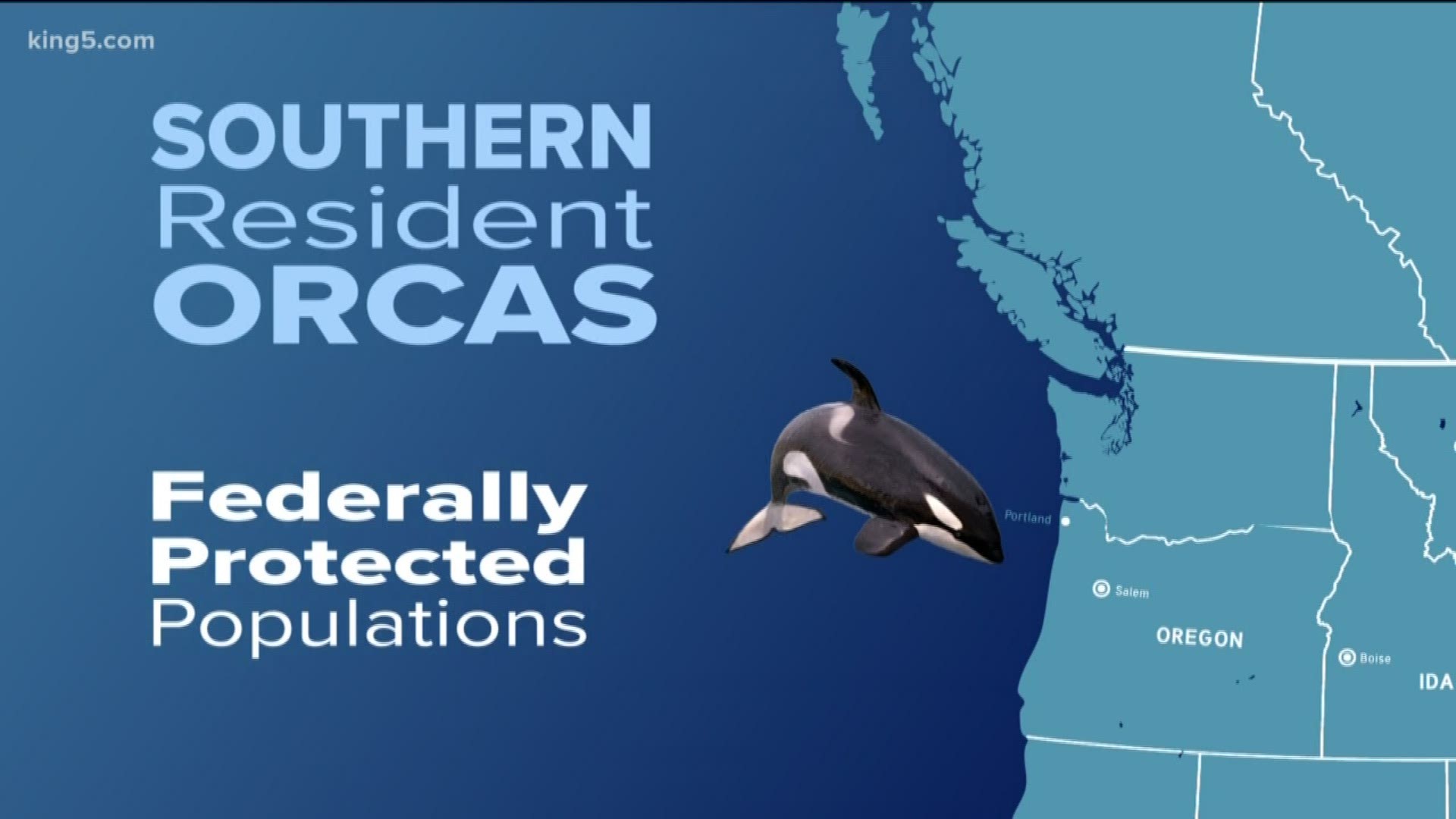Four bills that aim to protect Washington’s ailing Southern Resident killer whales have passed both legislative chambers.
On Monday, lawmakers approved bills that take aim at boat noise and pollution. Legislation that would influence dwindling prey and improve the safety of transporting oil were approved last week.
Each of the bills must get final approval from lawmakers before heading to the governor’s desk.
Under Senate Bill 5577 boats must stay at least 300 yards away from orcas instead of 200 yards under current law. It would also add a prohibition on being positioned within 400 yards behind an orca and add a speed limit of 7 knots when within half a nautical mile of an orca.
House Bill 1578 would require tug boat escorts for certain barges that haven’t required escorts in the past, because they’re smaller and have been considered less of a threat. Advocates of the bill say additional escorts would serve as a backup safety measure to prevent potential oil spills.
Another measure, House Bill 1579, hopes to boost the salmon population by allowing the state Department of Fish and Wildlife to halt hydraulic projects that could harm fish, changing the penalties for violating the hydraulic code, authorizing fishing licenses for smelt, and liberalizing catch limits for other types of fish like bass and channel catfish.
A final proposal, Senate Bill 5135, allows the state Department of Ecology to regulate some consumer products that contain certain chemicals that the department has deemed priority.
The plight of the orcas gained national attention last summer when the Southern Resident population dropped to an over 30-year low of 74 killer whales.
However, there has been recent signs of hope for orca advocates.
A new calf, L124, was identified back in January and appeared to still be in good health in March.
Another whale that previously showed signs of malnutrition now seems to be improving. Researchers spotted J17 earlier this month, and said the orca no longer appears to have peanuthead, which is a sign of malnutrition in orcas.

